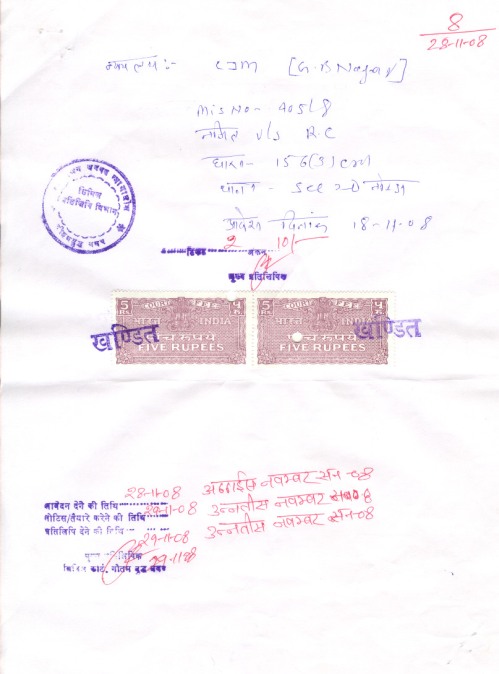Rudy’s compilation for avenues of possible counter cases
32, 120B,
167 (investigation cannot be completed in 24 hours),
182 (offenses committed by letters),
191 (transfer on application of the accused),
197 (prosecution of judges and public servants),
199 (defamation) ,
200 (examination of complainant) ,
201 (Magistrate not competent), 204,
209 (triable exclusively by Court of Session), 211,
249 (absence of complainant) ,
250 (compensation for accusation), 306,
321 (withdrawl from prosecution) ,
323 (commit to Session Court), 355, 378, 379,
384 (summary dismissal of appeal),
392 (judge of Court of Appeal are equally divided),
406 (criminal breach of trust), 420,
467 (period of limitation), 471,
497 (adultery), 499,
500 (defamation) ,
504 (insult with intent to provoke a breach of peace),
506 (criminal intimidation) , RCR
Damage recovery case u/s 9 of CPC (law of torts):
If she breaks into your home, creates a scene, and goes to ” protection
officer ” and lies that you abused her “physically, emotionally or
economically” , file a damage recovery case u/s 9 of CPC against her. Legally,
you must issue notice on the same day or next day. The suit will continue for
long time. It has no risk.
What I had compiled sometime back, may some repetition wrt Rudy’s options. S.191 :Giving false evidence+ S.340(1) of CrPC for Perjury @ Family/Magistrate Court
matter
S.209 : Dishonest claim
S.211 : False charge of offence made with intent to injure
S.361 : For child – Kidnapping from lawful guardianship
S.378 :Theft
S.383 : Extortion
S.463 : Forgery
S.499: Defamation
Sections which u can check with ur advocate(I dont remember the IPC section offhand for these crimes) – Criminal Intimidation, Criminal breach of trust(non return of loans), Threatening, Abbetment of crime, these may be referring to a period before even your wife filed cases against you.
Some other sections of IPC helpful for husband side:
182 False information, with intent to cause public servant to use his lawful power to the injury of another person
191 Giving false evidence
192 Fabricating false evidence
195A Threatening any person to
give false evidence
196 Using evidence known to be false
197 Issuing or signing false certificate
198 Using as true a certificate known to be false
199 False statement made in declaration which is by law
receivable as evidence
200 Using as true such declaration knowing it to be false
201 Causing disappearance of evidence of offence, or
giving false information to screen offender
202 Intentional omission to give information of offence by person bound to inform
203 Giving false information respecting an offence commited
204 destruction of document to prevent its production as evidence
205 False personation for purpose of act or proceeding in suit or prosecution there are
more
___________________________________________









Recent Comments